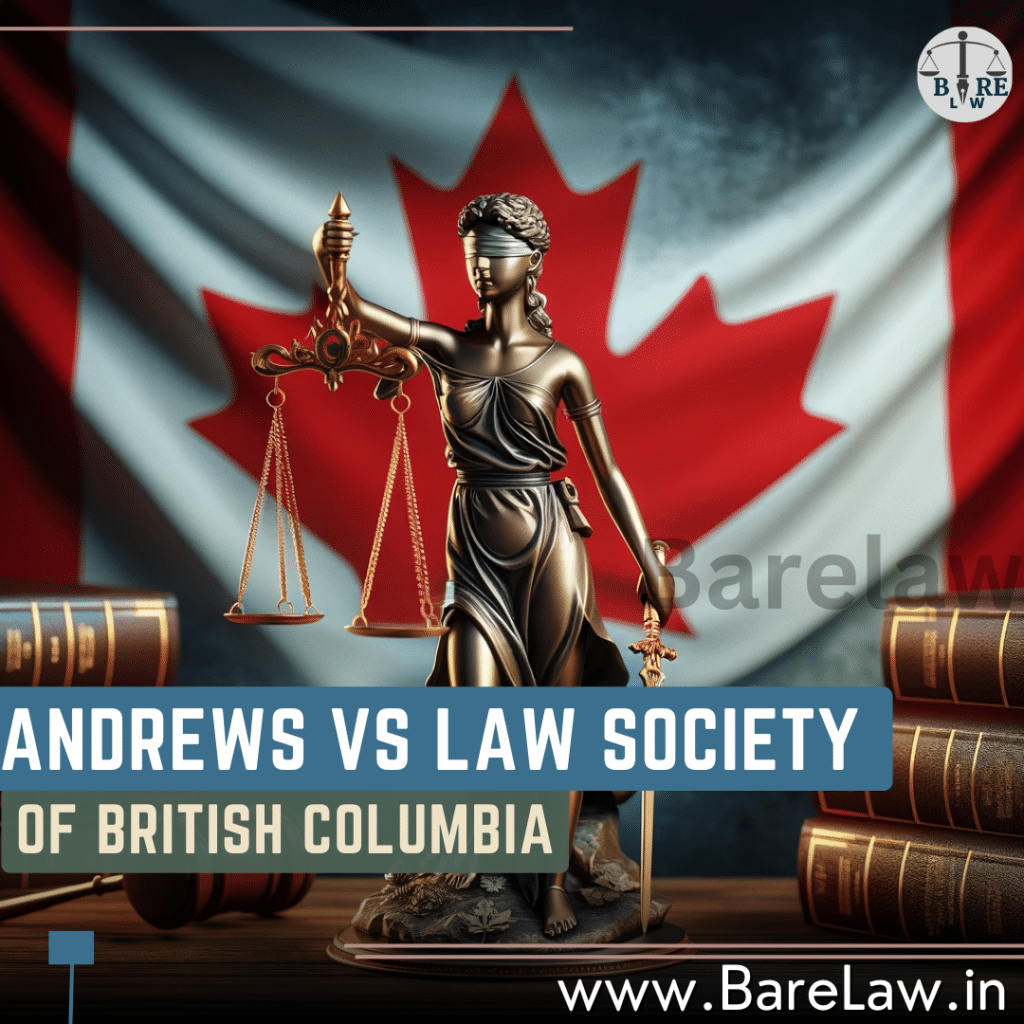
Andrews vs Law Society of British Columbia: Redefining Equality in Canadian Law
Introduction
The Andrews v. Law Society of British Columbia case is a pivotal decision in Canadian legal history, addressing key aspects of equality rights under the Canadian Charter of Rights and Freedoms. This article explores the background, legal proceedings, and the lasting impact of this landmark ruling.
Background
Mark David Andrews, a British international rower and Oxford law graduate, moved to Vancouver, Canada, and was denied entry into the legal profession due to a citizenship requirement. Section 42 of British Columbia’s Barristers and Solicitors Act permitted only Canadian citizens to be called to the bar, a law that Andrews contended violated Section 15 of the Charter, arguing it was discriminatory based on national origin.
Legal Challenge and Court Decisions
Andrews filed a motion challenging the validity of Section 42, alleging a violation of equality rights. The Supreme Court of British Columbia initially upheld the citizenship requirement, but this decision was overturned by the British Columbia Court of Appeal. The unanimous opinion authored by Justice Beverley McLachlin deemed the requirement as an unreasonable, unfair, and a violation of equality rights under Section 15 of the Charter.
Supreme Court’s Judgment
On February 2, 1989, the Supreme Court of Canada ruled in favor of Andrews. The court established the “Andrews test” for assessing claims under Section 15, focusing on actual differential treatment based on prohibited or analogous grounds that result in discrimination. The court redefined the approach to equality, stating that it is not merely concerned with identical treatment but with the equal application of the law.
Significance and Legacy
This ruling was instrumental in shaping the first decade of Section 15 jurisprudence, expanding the understanding of equality to include historically marginalized groups not explicitly protected under the Charter, such as members of Canada’s LGBT community. Subsequent cases have modified but largely maintained the essence of the Andrews approach.
Conclusion
The Andrews v. Law Society of British Columbia case stands as a landmark in Canadian legal history, significantly influencing the interpretation of equality rights and contributing to the evolution of a more inclusive legal framework.





